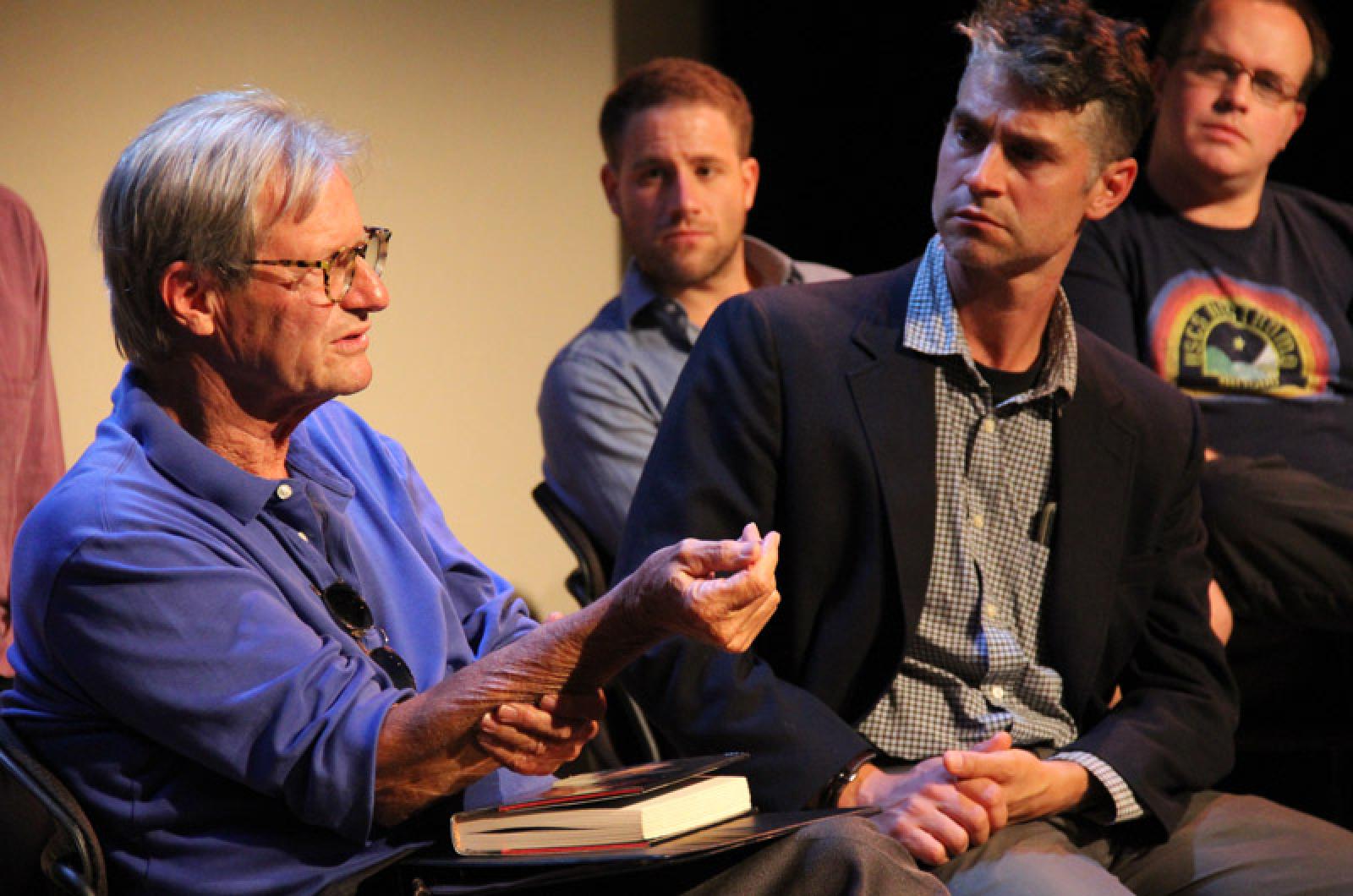Amidst shouts in Italian and a few anachronistic jokes, James Reston Jr.’s play, Galileo’s Torch, based on the life and trial of Galileo Galilei had its Martha’s Vineyard premiere Monday night in a reading at Vineyard Playhouse directed by Scott Barrow.
“I’m absolutely thrilled with tonight,” said Mr. Reston during a question and answer session after the play. “But I would love to do it as a full production.”
The play recounts Galileo’s life from his discovery of the telescope up until his trial and subsequent house arrest under which he would remain for the rest of his life. The narrative was framed as one of a biographer trying to put together a play with a group of actors who questioned his motives and reasoning at every turn, creating a play within a play aspect that invoked Renaissance style.
Mr. Reston formed the idea for the play from a book he had written on Galileo in the early 1990s, Galileo: A Life. The trial scene of the famous Renaissance man gave Mr. Reston the dramatic fuel he needed to turn the rest of the book into a play based around Galileo’s life. Its reading Thursday night at the Vineyard Playhouse is only one of a few times the work has had anything like a production, having previously been staged outdoors in Washington, D.C. last summer.
The play raises questions about Galileo’s fraught relationship with his two nun daughters, along with whether or not he was physically tortured by inquisitors, and the myth that following his recanting of his beliefs he said, “It still moves,” in reference to his belief in a heliocentric theory. Many of these questions are only given partial answers, and Mr. Reston actually prefers it that way.
“I like it to be a little more open ended,” he said, as audience members questioned him afterwards on the subject of Galileo’s possible torture. “Was it psychological or physical scars? I don’t know.”
During the question and answer period, many in the crowd listed the numerous things they liked about the play, ranging from the tension created between Pope Urban VIII and Galileo to the vocal range possessed by the actors on stage who had to rapidly shift from one character to another as the play jumped in and out of the modern day.
But one thing was clear above all else as Mr. Reston answered questions: the play was certainly his own invention. After one audience member asked about whether dialogue had been taken directly from Galileo’s own letters, Mr. Reston corrected that assumption quickly.
“That came from my own head,” he said.




Comments (1)
Comments
Comment policy »